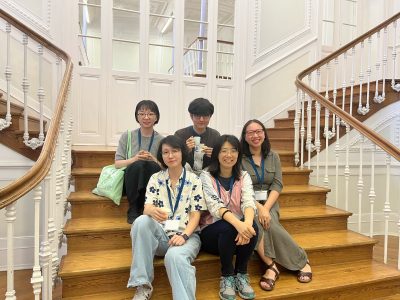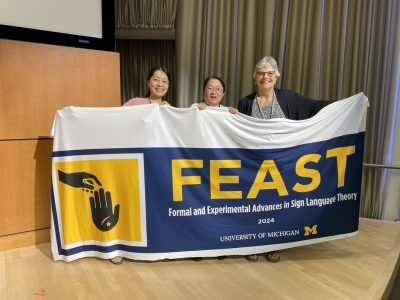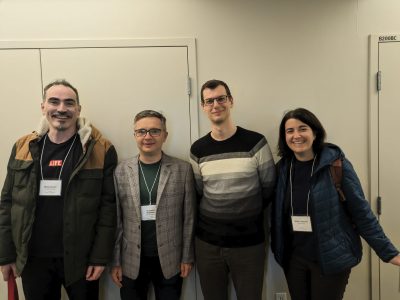The 16th Generative Approaches to Language Acquisition conference (GALA 16), was held September 12-14 at the NOVA University of Lisbon. UConn linguistics was represented at the conference with talks by:
- Yixuan Yan. A-not-A Questions in child Mandarin: Deletion or reduplication?
- Zixi Liu and Giulio Ciferri Muramatsu. Early mastery of the Japanese Case system: New evidence from relative clauses.
… and posters by:
- Ting Xu (PhD 2016, now at Tsinghua University), Lyn Tieu (PhD 2013, now at University of Toronto) and Stella Christie. Children are sensitive to the presupposition of you ‘again’ in Mandarin: Evidence from two alternative methods.
- Ayaka Sugawara, Koji Sugisaki (PhD 2003, now at Kwansei Gakuin University), Eri Tanaka, Satoshi Tomioka and Yoichi Miyamoto (PhD 1994, now at Osaka University). Japanese-speaking children’s association of “only” in ditransitive sentences.
Part of the UConn linguistics contingent at GALA:


